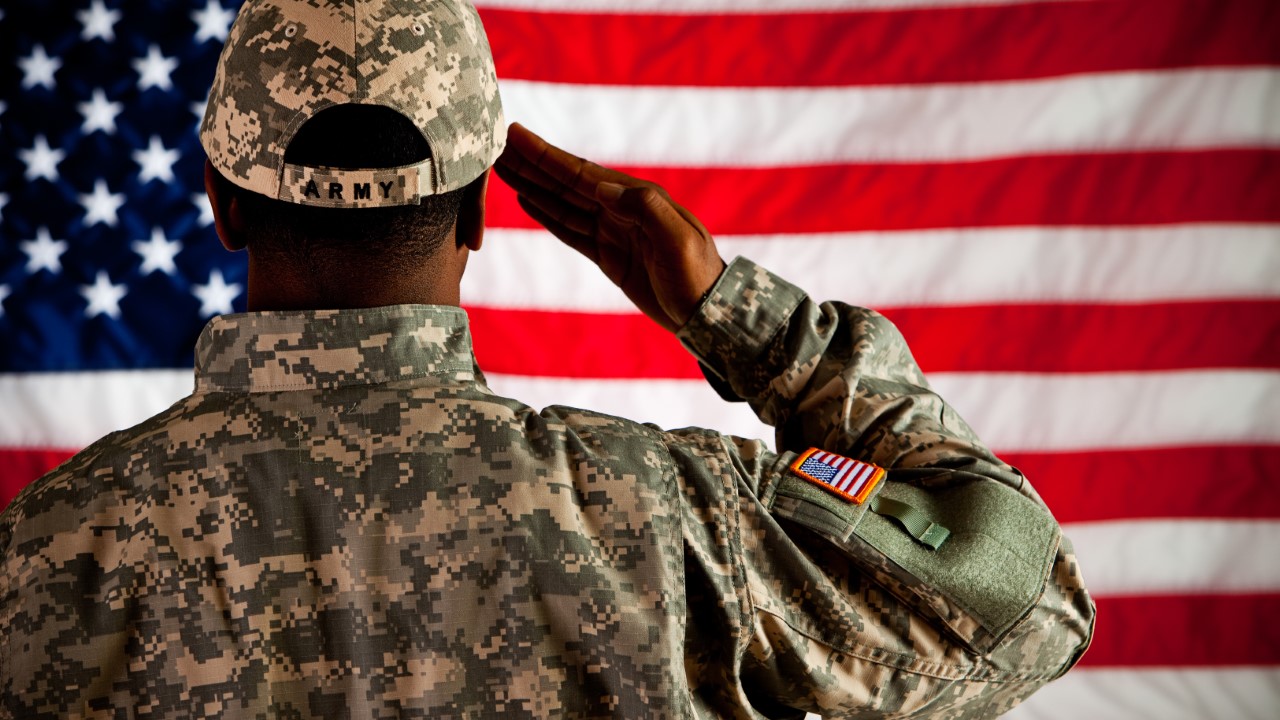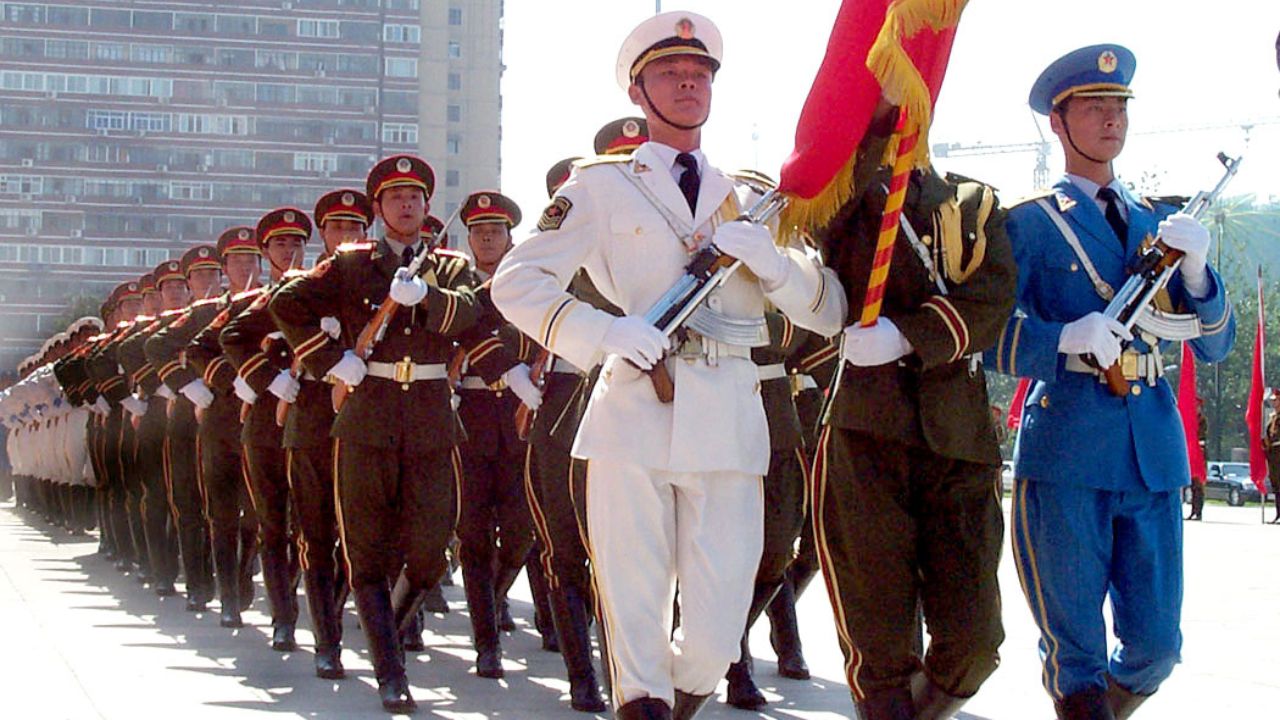13 Telltale Signs Someone Served in the Military

Most people know someone who has served in the military. But have you heard the old tale that you can tell whether someone has served simply by observing them?
The US military has around 1.4 million active members. With such intensive training and lifestyles, the impact of military service stays with them long after they stop serving. Veterans tend to retain certain behaviors, appearances, and character traits.
This list introduces the signs you can look for to determine whether someone has served in the military. In addition to hypervigilance and military vocab, there are subtle signs. This list is ideal if you want an insight into the world of post-service.
Their Posture

Posture is a dead giveaway. While many soldiers see combat, generally, a lot of standing still is required in their day-to-day lives. At parades and official procedures, soldiers have to stand totally to attention for long durations. They must keep their chins level, backs straight, and arms at their sides.
Will you see ex-military personnel standing to attention in public? Probably not — that would look a little strange. However, you may notice a higher tolerance for standing for long durations and a better posture overall.
Great Eye Contact

Thousands of people are good at eye contact, but this is still a notch on your “could this be military/ex-military” tally. There’s a massive expectation for eye contact in the military, especially when saluting officers or other superiors.
Soldiers aren’t only used to holding eye contact. They’re trained to keep it during tense moments. If you can withstand the awkwardness of a grilling from a sergeant and still keep eye contact afterward in your salute, you have good eye contact for a lifetime.
Military Vocab

Military vocab slips out for veterans like a knife through butter. Military service is just so all-encompassing, and that goes for its jargon, too. Watch for phrases like 13:00 hours rather than 1 p.m. Phrases like “negative” and using the NATO phonetic alphabet are also real giveaways.
Military jargon can quickly rear its head if you’re sharp enough to catch it. Some people will correct themselves, but you can usually clock it quick enough.
A Purposeful Walk

A “soldier’s walk” is a classic; everyone knows it. In service, marching is incredibly uniform. It oozes purpose, discipline, and utmost control. You probably won’t see a former soldier marching down the street (again, that would be a bit strange). However, some aspects of all that marching inevitably leak into post-service life.
Watch for a purposeful walk — do they seem almost robotically dogged in their direction? Ex-military have a knack for always looking like they know exactly where they’re going and have a quick pace to match it.
Falling into Step

Keep that “soldier’s walk” in mind, but watch out for this more subtle sign to do with walking. Former military personnel are more likely to fall into step with those around them. It’s natural, given all that time spent marching, right?
If you find yourself seamlessly syncing strides with someone, just a heads up, they could be ex-military. It’s one of the most fun yet discrete signs of spotting former soldiers.
Respectful Address

One thing the military drills into people is respect. Amongst the vast majority of veterans, this lesson lingers long after service. All you have to do to spot this is listen carefully when someone is speaking to others.
You’ll notice that ex-military use terms of respectful address in unorthodox ways. For instance, formally addressing shop assistants and wait staff. Think “ma’am” and “sir” at regular intervals. It’s an admirable trait that may as well be a huge “x marks the spot” flag for a military background.
Punctuality

Speaking of traits, punctuality is military personnel’s bread and butter. The clock rules everything during service, and timekeeping is necessary in everyday life. Soldiers have to be on time or get out — punctuality is that extreme.
With such a high value placed on being on time, it’s easy to see how this trait stays with soldiers long after service. So, seeing someone twitching at the time and frequently checking their watch or phone clock could be a sign they’re ex-military.
Crisp, Clean Clothes

In the military, soldiers are all responsible for keeping their own clothes neat. In fact, the military stipulates that personnel must keep clothes in top condition; dirty or creased clothes are a huge no-no.
If they couldn’t before, soldiers leave the military extremely handy with ironing and a knack for maintaining high cleanliness standards. Look for clean-clothed civilians because it’s another definite tally in favor of them being ex-military.
Generally in Shape

We all know the physical demands of serving in the army. You’ve got to be super fit, running long distances while carrying heavy gear and marching for hours.
Of course, some people will leave the military and bask in not having to stay in shape any longer. But, for the most part, fitness remains a central role in their lives. If someone is in good shape and can sustain a good walking or running pace, they just might be ex-military.
Tactically Vigilant in Public Places

You’d definitely expect this one from ex-military personnel. After all the training and great instincts cultivated in service, it makes sense that they’d be vigilant in public places. Being aware of entrances and exits while sitting down at a bar or restaurant and even just concentrating in crowds are all signs that someone is vigilant.
Look for vigilant behaviors, too, like scanning rooms and noticing commotions quicker than others. These are solid signs that the person could be ex-military personnel.
Decisive

In military service, you’ve got to make the right decisions and make them quickly. This is a skill not many people have. It’s typically reserved for those who regularly handle responsibility. Think managers, business owners, and — you’ve guessed it —- military.
Former personnel are likelier to make logical yet quick decisions, especially under pressure. You could pick this up in any situation, from handling a flight cancellation to ordering off a menu. Calm decisiveness is a definite giveaway.
Military Hairstyles

Did you know that, for men, the rule on hairstyles when serving in the military is no longer than three inches long on top? For girls, hair must be tightly placed into a low bun, which can’t stand more than 3.5 inches from the scalp. When this habit sticks post-service, it’s particularly easy to spot men who served in the military. Just look for skin-short sides and short hair on top.
Although this comes with a caveat, some ex-military personnel are ecstatic to finally rock a beard or grow their hair. Keep that in mind.
Speedy Eaters

Finally, a telltale sign you can spot over breakfast, lunch, and dinner is whether they eat quickly. Personnel are taught to be efficient, which goes for eating, too. Rather than enjoying a meal for its flavors, soldiers treat food as a practical solution to hunger and fatigue. It’s seen as fuel rather than purely enjoyment.
The next time you see someone wolfing down their food, paying little attention to what’s actually on their plate, pause. Could they be ex-military?





